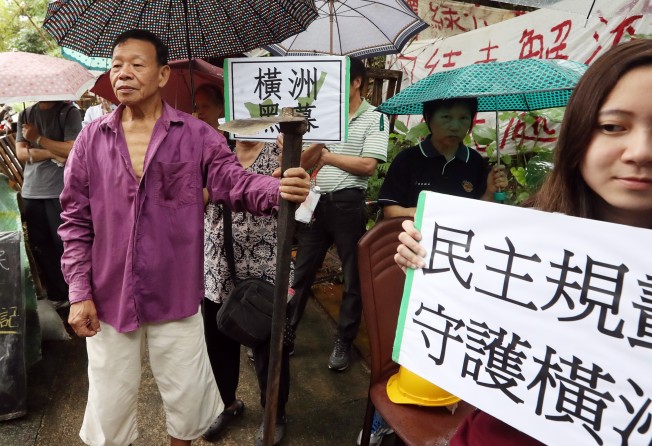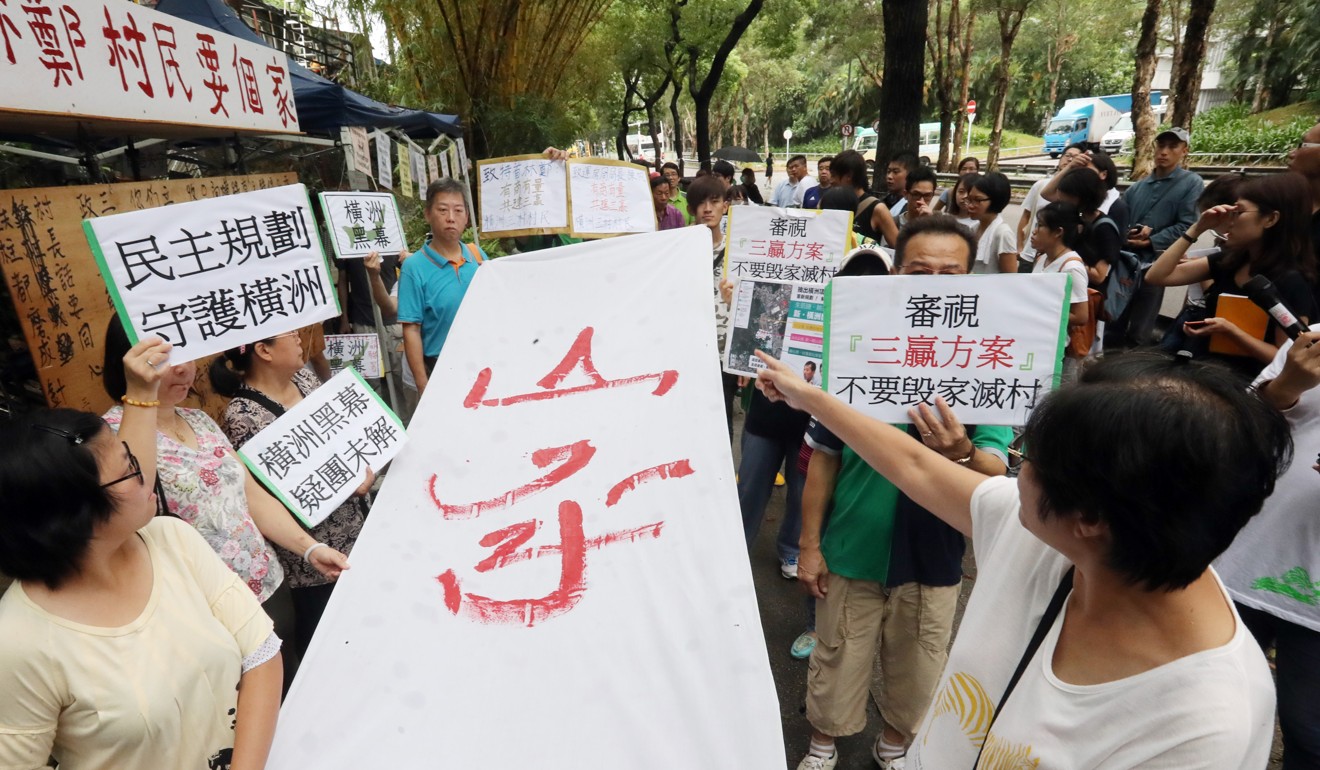Wang Chau villagers threaten ‘bloody fight’ in the face of eviction under Hong Kong housing plan
Deadline of evacuation order has passed but residents angry over lack of transparency about relocation and compensation

Villagers facing eviction on Thursday over a controversial public housing plan in Hong Kong’s New Territories have threatened to put up a fight that could turn ugly if their requests fall on deaf ears.
About 400 residents living in three squatter villages in Wang Chau, Yuen Long, were expected to be forced out after a three-month evacuation order by the Lands Department expired at the end of Wednesday.
By 10am Thursday, no department officials had been seen around the three villages: Wing Ning Tsuen, Fung Chi Tsuen and Yeung Uk San Tsuen.
The villages cover 79 private lots in an area measuring about 3.5 hectares. A total of 180 households were identified, of which some 30 were residing in unlicensed structures or structures that were not registered by the Squatter Control Survey of 1982, meaning they may not qualify for compensation.
Chan Oi-kam, village chief of Wing Ning Tsuen, said officials would be allowed to enter the villages to affix notices but not [force them out of ] their homes, adding that the villagers would not register for land resumption and relocation.

“Are the officials looking forward to bloody clashes in January 2018?” Chan asked, strongly condemning the administration for refusing to visit the villages despite repeated requests.
He also slammed the government for failing to detail plans for compensation and relocation.
In its first campaign communique published and distributed on Thursday afternoon, the Wang Chau Green Belt Development Concern Group told villagers to collectively refuse to register so they could obtain more bargaining power in negotiations for compensation. Otherwise, the newsletter said, the government would feel little pressure and could just pack them off with the lease it was offering.
The government planned to complete the land resumption and demolition works early next year, which would also be the ultimate deadline for the villagers to leave.
Wong Kin-man, who has been living in Wing Ning Tsuen for 70 years, said they did not hope for violence, but added: “It is okay to sacrifice old men like me for future generations if we are left with no choice.”
But Ng Ching-han, whose family has been living in Fung Chi San Tsuen for 50 years, said: “We are not rioters. We want no confrontation with the government.”
Villagers held signboards bearing the words “Review the win-win plan, do not destroy my home” and “Conversation is better than confrontation, win-win is better than a force-out”.
Ng said villagers wanted to discuss with officials a win-win alternative suggested by former lawmaker Edward Yiu Chung-yim and current Legislative Council member Eddie Chu Hoi-dick. The proposal involved developing brownfield sites nearby instead of the green belt zone where villages are located. Brownfield sites are degraded agricultural land legally or illegally developed into open storage areas.
Outside Yuen Long government offices, Chu urged authorities to consider his plan, adding that villagers had been upset about a lack of transparency over relocation and compensation details.
The development plan in Wang Chau to build 4,000 public housing flats on a 5.6-hectare green belt site has drawn heavy public criticism since the government admitted last September it had shelved original plans to develop a nearby brownfield site. The change came after informal discussions with rural strongmen.
The 33-hectare brownfield plot could yield 13,000 more flats.
A government source said those living in non-surveyed and non-registered structures were not entitled to ex gratia compensation. But the government might offer assistance based on compassion, including places at a transit centre or welfare assistance.
The Lands Department said it had sent letters offering ex gratia compensations to all the affected land owners and that eligible affected residents would be granted public flats, transit homes or ex gratia subsidies. It claimed no villager would be left homeless when the demolition took place early next year.